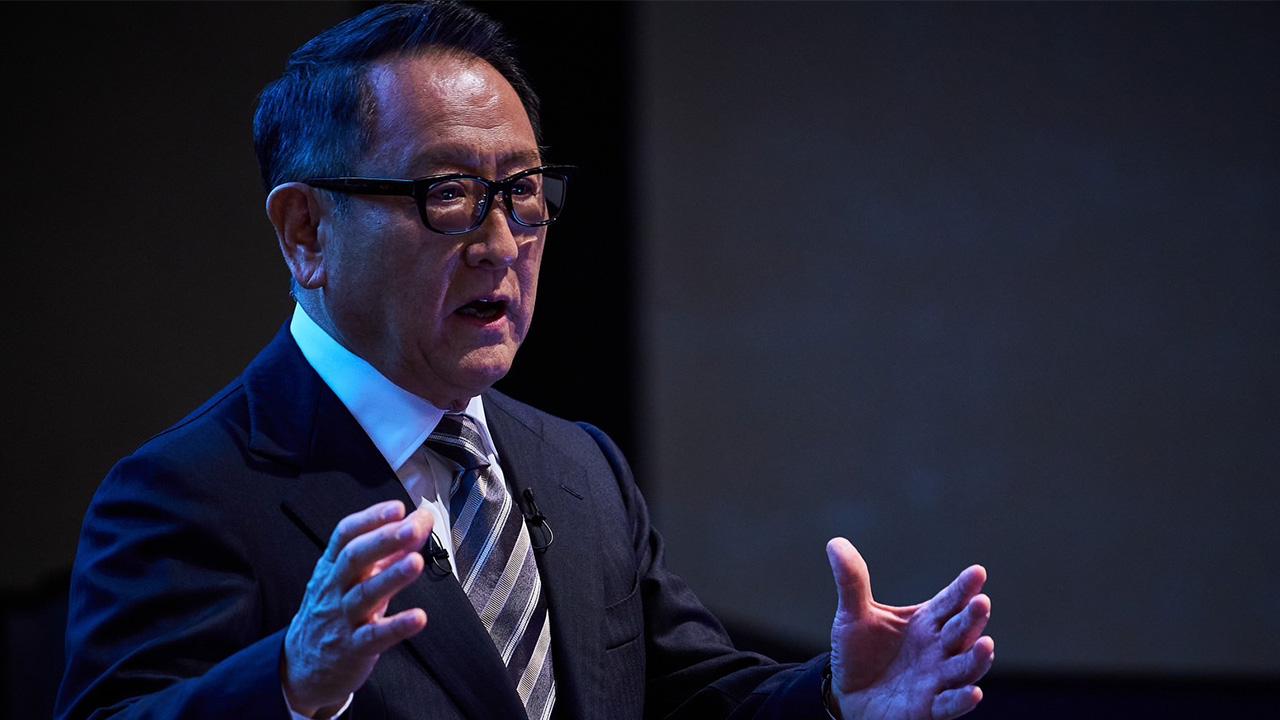
Akio Toyoda talks about his concerns and conduct during 14 years as president, along with what comes next.
14 years spent building the strength to make others happy.
Q31. What are your expectations for us in helping to protect the brand?
I want you to love the brand and use it to create more smiles.
Q32. Many years have passed since our dealership’s founder, so how would you guide parents and successors who lack true readiness and resolve?
Please try your best. (audience laughs)
Q33. What should we be aware of as Lexus aims for full electrification?
When Lexus goes fully BEV (battery electric vehicle) in 2035, we may not be able to deliver Lexus cars to every customer who wants one.
Around a billion people in the world today lack sufficient electricity, including charging and infrastructure constraints. This means that while Toyota offers a full global lineup, the regions where Lexus sells will be limited.
We must be prepared to face such decisions at some point.
Q34. In working toward carbon neutrality, how were you able to commit to a multi-pathway approach from the outset, even in the face of headwinds and much criticism?
I had simply seen the reality. In the past, Toyota was also focused on market share and volume. Now, I think we are about ever-better cars, being the best in town, and working for someone other than ourselves.
Market share and volume are results. We shouldn’t treat them as targets. Still, results are important. Without results, we lose strength, and no matter how many good things we’re doing, we need that strength to make people happy.
However, the moment we treat these as targets, the approach changes. If you are part of the management, please don’t forget that.
Q35. What are the key points for Africa in pursuing a multi-pathway approach?
In Africa, cars sustain lives. That point should underpin everything.
Q36. In terms of products, Central and South America is moving closer to the home region of Asia, including the availability of Daihatsu products. What was the meaning behind your “home & away” strategy for various regions?
Home comes before away. It’s simply a matter of perspective. In that sense, you are all home.
Q37. Some rivals are receiving state support. How should we, as Toyota, compete?
I feel that I have spent the last 14 years building the strength to figure out how we can function sustainably and independently on our own. When I became president, we lacked that strength, so we had to rely in part on support.
Woven City, for example, should really be a national-level project. Yet by pursuing it with our own land and money, I believe we can create our own future.
I want Toyota to manufacture goods and create products independently and sustainably. Otherwise, we will have to pass on the baton with everything already reaped, as when I became president.
Q38. You have planted many seeds for us, from our products to motorsports and Woven. I would love to know if you have any other seeds in mind.
I have a lot of different seeds. In the past, after planting one, I was ousted from the China project. And what was I told at the time? “If it goes well, the cultivators will take credit; if it fails, they’ll say the seeds were bad.”
As long as I am chairman at Toyota, I don’t want to allow such talk. We have people sowing, cultivating, and harvesting, and I want everyone to be grateful to others.
Seeds must be sown before they are cultivated, and the crops must be tended before they can be harvested. And our work doesn’t finish with the harvest, as the cycle turns to sowing the next seeds. I would like people to think about how that cycle is going at any given time.
Q39. At the 35th anniversary event in the Philippines, the emcee asked what GR means to you. What did you mean when you answered, “Revolution!”?
You would be best off asking (Shigeki) Tomoyama (Chief Officer, Japan Sales Business Group).
GR is now something of a racing brand, but when we began in my 30s, I brashly wondered if Toyota was really okay.
Company policy is important, but assuming you follow the obvious company rules on not causing anyone harm or trouble, I want everyone to be given a fair chance to speak for the benefit of making better cars and winning more customer smiles.
I hope that all of you listening to this will feel free to speak your minds today, tomorrow, and wherever you are.
Q40. What is needed to boost motorsport activities in developing countries?
Fun to drive. To me, it’s all about creating more smiles.
Then came a big round of applause and cameras capturing a smiling Akio. The usual scene. So, what were those footsteps about?
Here is what Akio himself had to say before answering those 40 questions:
“With my appointment as president, people started saying I wasn’t up to the task and should take responsibility by quitting. I am human just like everybody else, and I want to share the things that troubled me and the actions I took to clarify Toyota’s philosophy, skills, and conduct.”
In his responses, Akio’s tone was particularly emphatic on two points: the Toyota he had spent 14 years reshaping was in danger of returning to its old ways, and this had to be stopped before anyone noticed.
That’s why Akio had to convey the message himself. Perhaps it was the emotion that added weight to his footsteps.
Akio Toyoda’s Juku marked the beginning of a new chapter in his efforts to restore the essence of Toyota.

